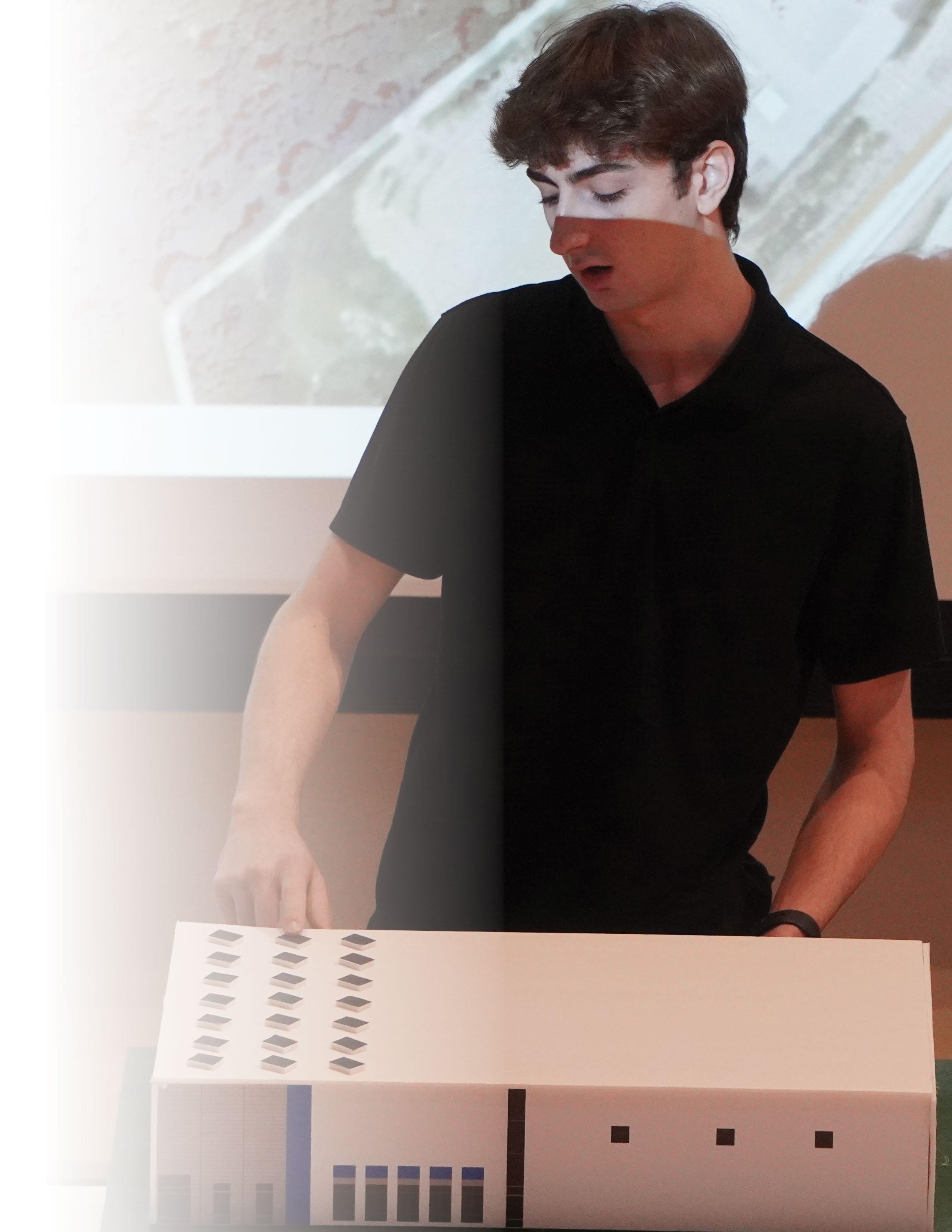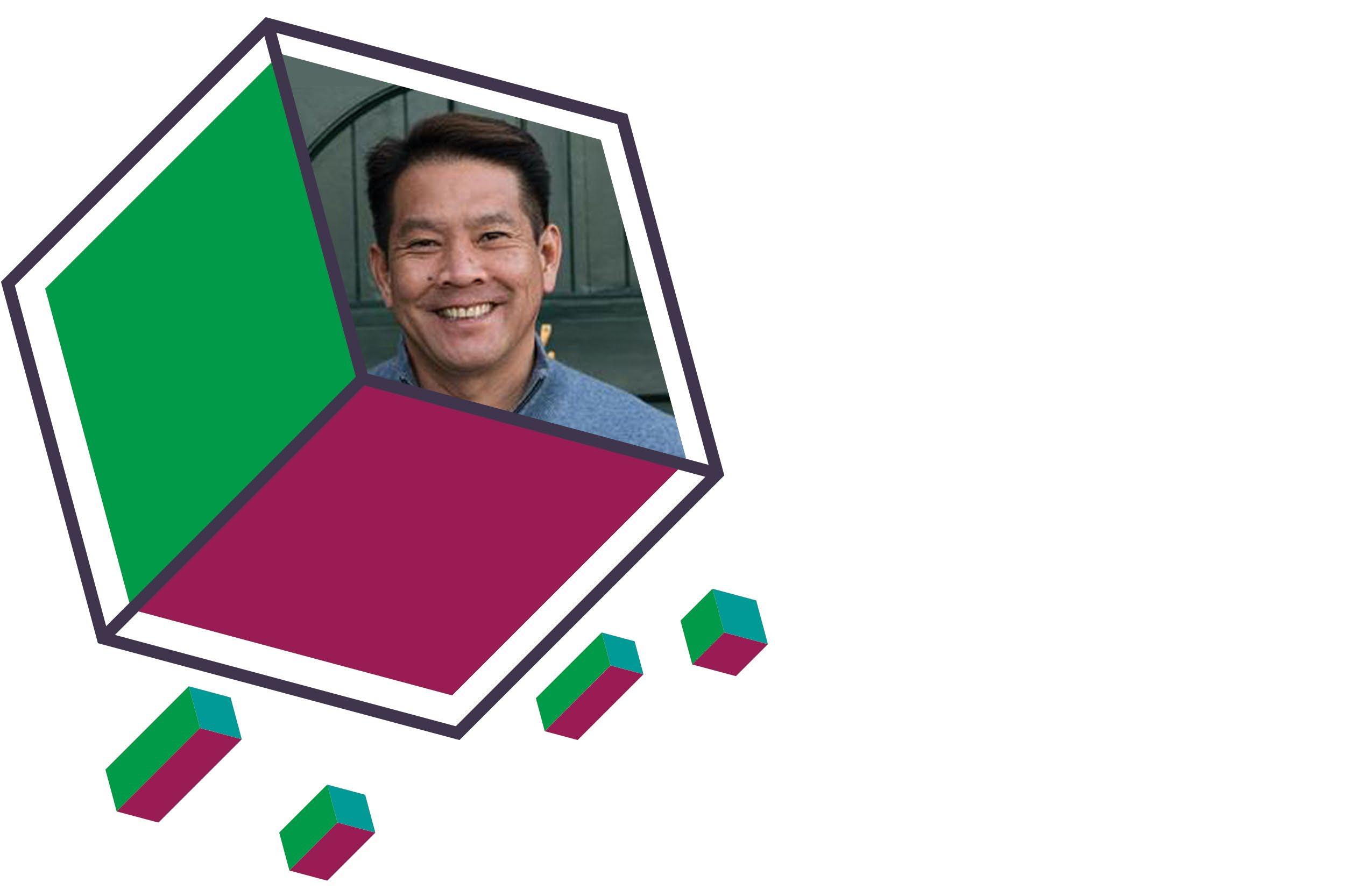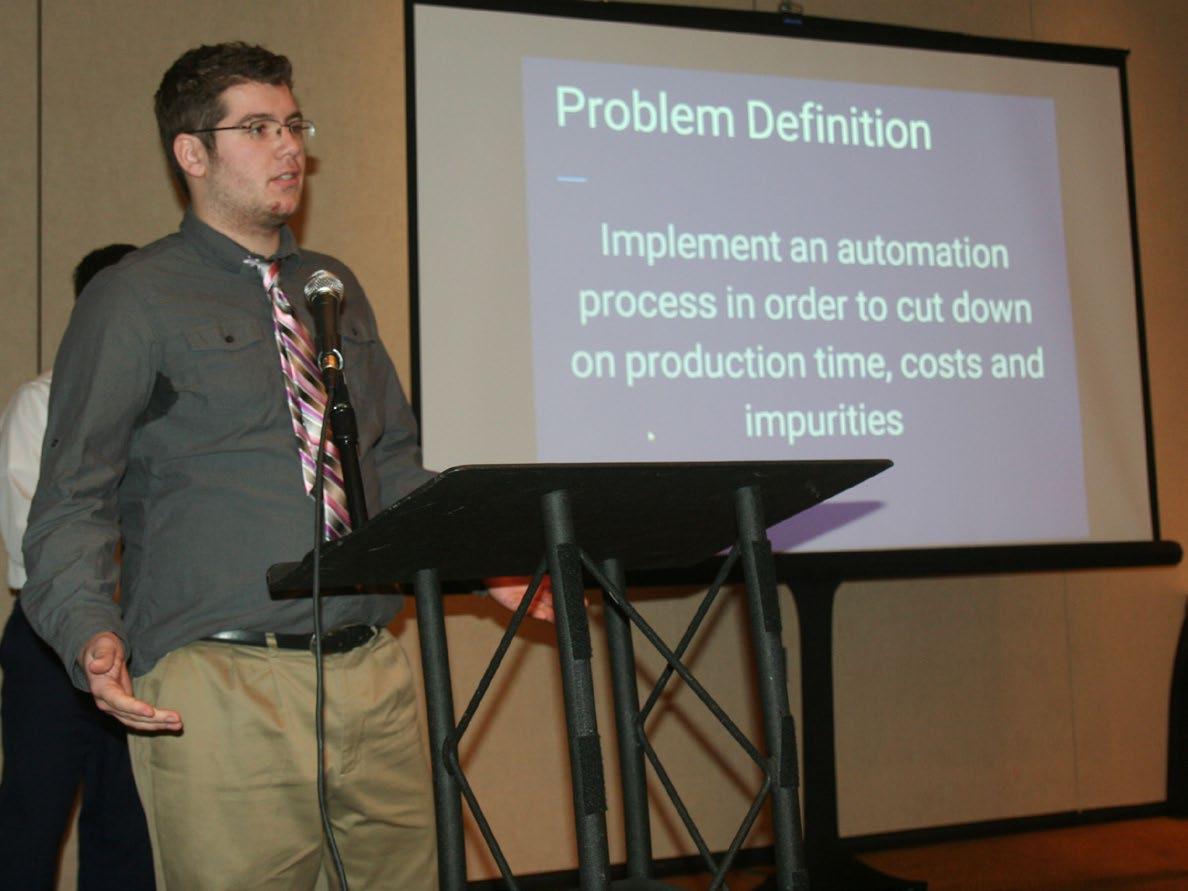
3 minute read
PBL PARTNERSHIPS WITH INDUSTRY
“Our students are looking for challenges,” said high school educator Tom Isaac who has been involved with problem-based learning in South Fayette for more than a decade. What began as a partnership with a national company for an after-school club 15 years ago has created a culture of innovation with South Fayette students collaborating with corporate professionals across industries to solve real-world problems. Some of the designs, techniques, and products those companies now employ were first developed in South Fayette classrooms.
Based in nearby Canonsburg, Pennsylvania, AllClad – manufacturer of high-end, Americanmade cookware – partnered with South Fayette High School in 2008. South Fayette students and educators first toured the plant and then met with company leaders who presented them with the issues facing the company. Those issues could be something seemingly as simple as redesigning packaging to be more cost effective or as complex as identifying methods to dispose of waste water that is the result of processes in the factory.
Advertisement
The partnership extends to all areas of All-Clad’s operations. While one group of South Fayette students works on problems from the company’s engineers, another group is exploring ideas developed by the company’s marketing team. These diverse opportunities reach more South Fayette students across academic and career interests.
Over the past 15 years, South Fayette High School students have solved problems for All-Clad including:
• Designing connected products with the ability to wireless inform users of activity in the cookware
• Planning the implementation of automation in All-Clad’s assembly room
• Researching and proposing the expansion of All-Clad’s footprint into the outdoor cooking market
• Developing an apparatus and system to allow for easy and safe storage of All-Clad cookware
• Designing and prototyping an automated box folding workcell
• Developing a proof of concepts and determining the cost effectiveness of an AIbased pan inspection system
That partnership with All-Clad, initially part of an after-school activity until 2013, served as the foundation for expanded collaborations with additional local and national companies.
For the Allegheny County Sanitary Authority, exploratory science students determined the best way to communicate to residents the need to develop ways to reduce storm water overflows.
For Calgon Carbon, South Fayette students created a consumer market for odor-control products using the company’s granulated activated carbon.
For EAFab, students constructed a functioning model of an overhead crane to carry scrap materials to an electric arc furnace.
For Covestro, a supplier of high-performance plastics, South Fayette students tracked the flow of electronic waste and plastic materials after consumers purchased them. They also determined the business opportunities for the company that could result from the construction of solar and wind energy generation.
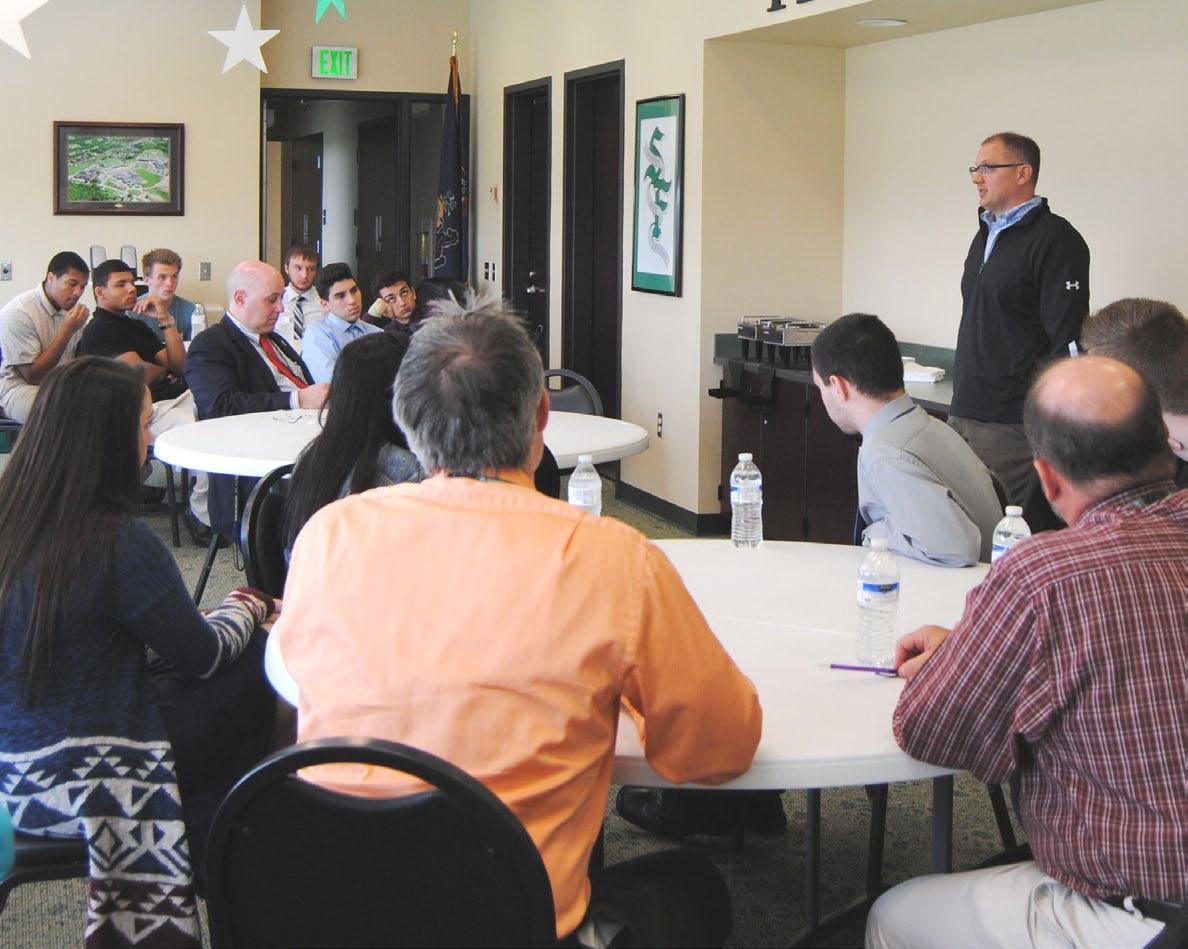
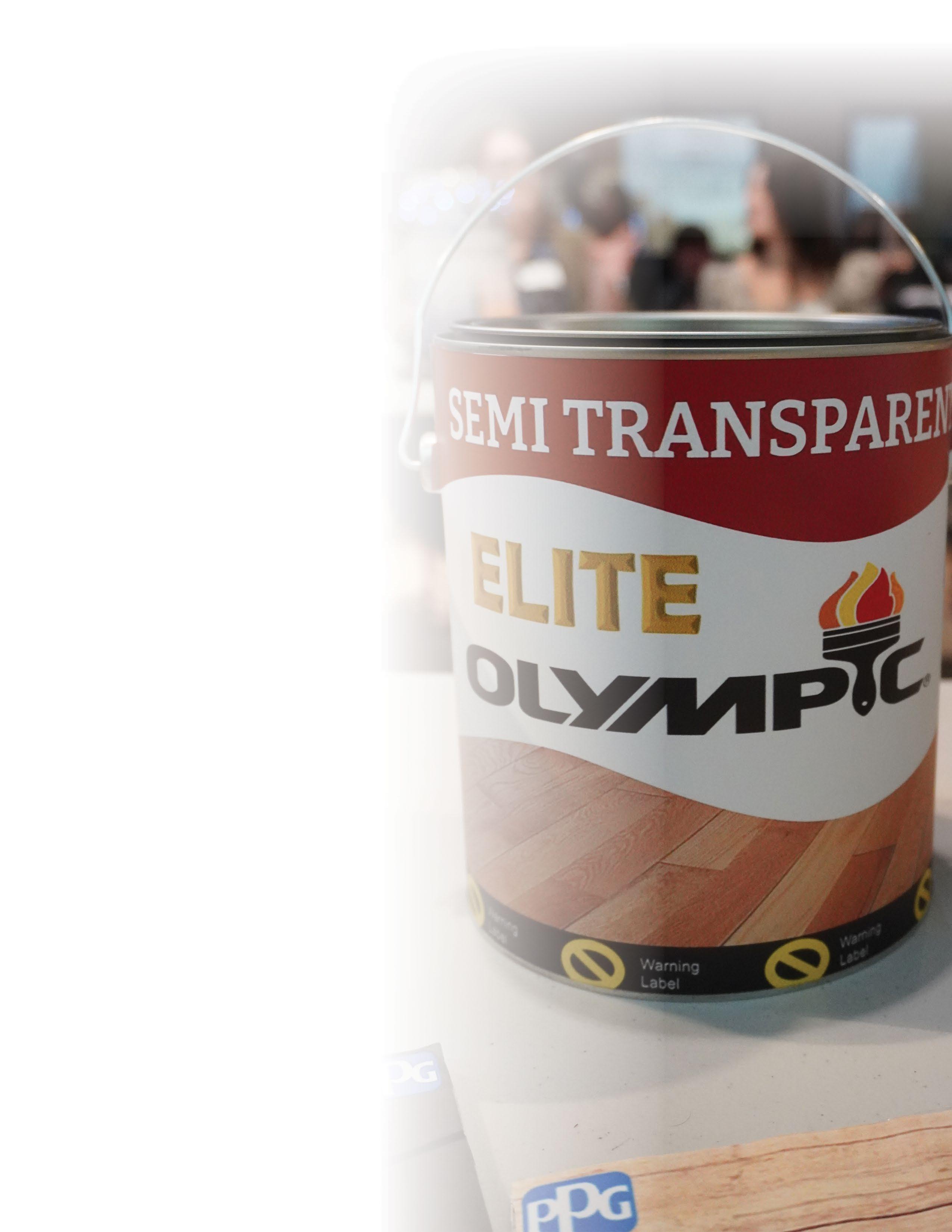
For Hennecke, South Fayette students created safer and more cost-effective drone methods instead of sending inspectors onto chemical containers.
Just this school year, graphic design students created new marketing brochures and in-store displays for PPG. Marketing representatives from the Pittsburgh-based company remarked that they did not get this type of experience until college. And even then, it was not at the level of South Fayette’s program.
Isaac says the most rewarding part of problem based learning comes when their industry partners implement the solutions his students propose.
“All-Clad’s website looks the way it does today because of South Fayette students,” Isaac explained. “EAFab uses the formula students developed to measure the radius of curvature for metal pipe based on a pipe rolling machine’s settings. Hennecke’s lobby space in its new headquarters was designed by our students. PPG designers took our students’ work straight to a design meeting that afternoon.”
High School STEAM Coordinator Jim Hausman said South Fayette’s problem based learning program allows students to drive the process.
“Engaged, passionate learning does not look like traditional learning,” said Hausman. “We learn by doing. And these projects facilitate learning for organic growth.”
Hausman’s students are most impacted by how they are treated by the industry professionals.
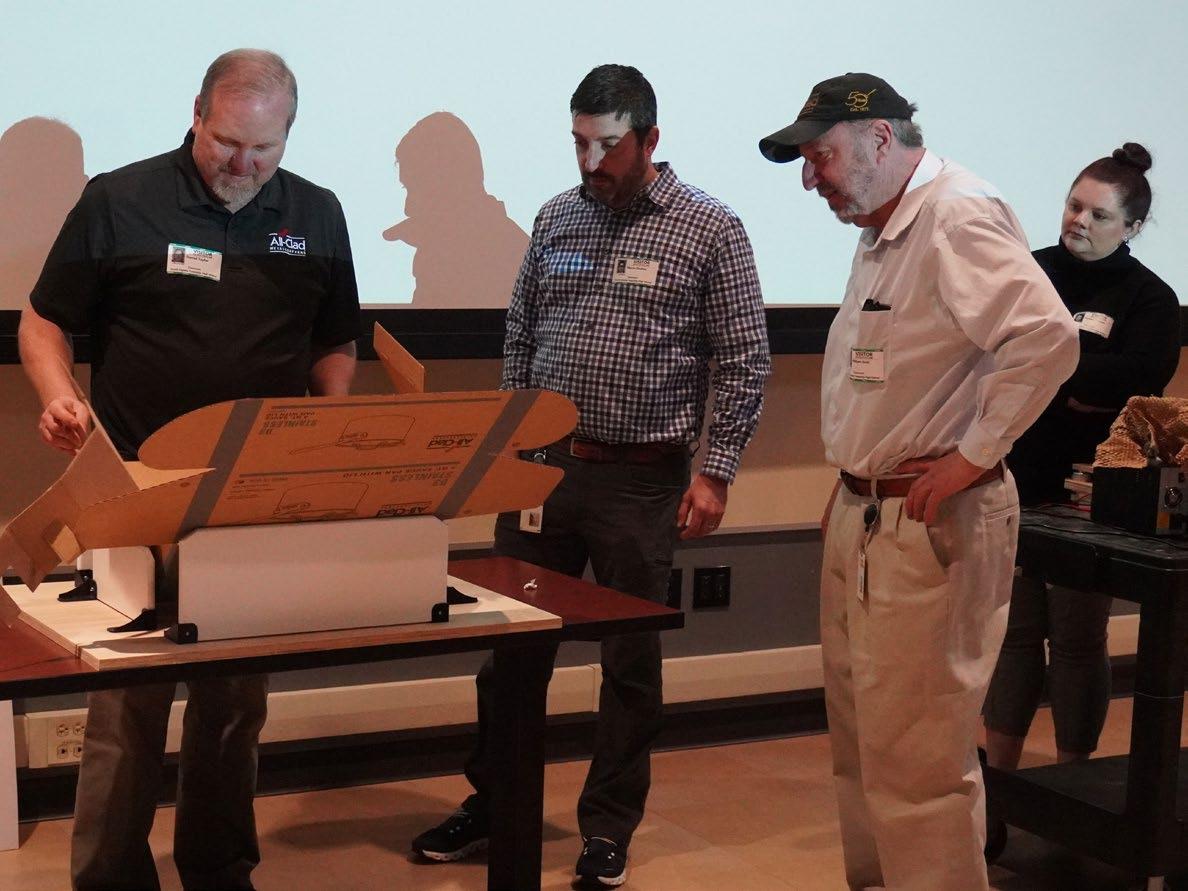
“The typical roles melt away, and that changes everything for our students,” Hausman described. “These experts with decades of experience speak with the students as peers. And our students are always amazed when they are taken seriously and treated as adults.”
In fact, All-Clad representatives do not call them “students.” Rather, they’re called “consultants.”
Problem based learning alongside leading national companies gives South Fayette students a glimpse into their futures, Isaac said.
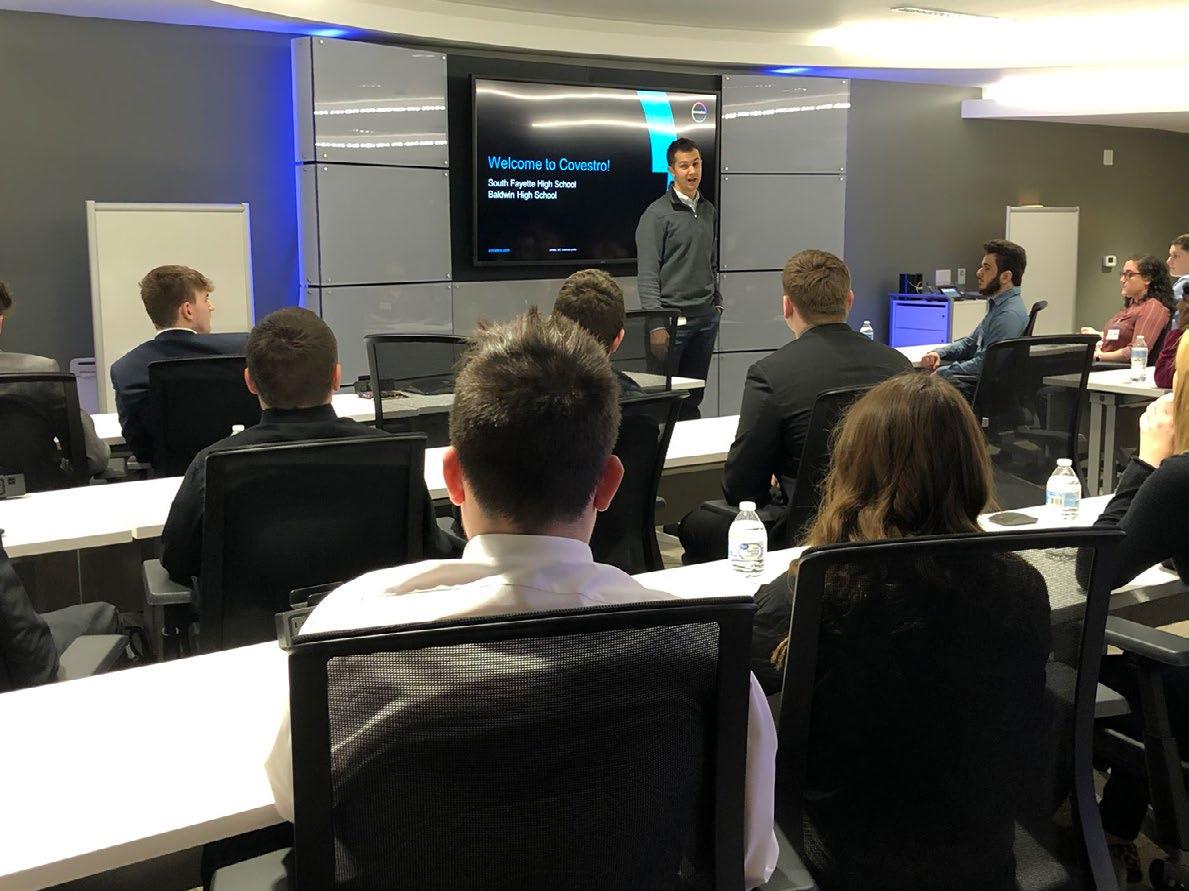
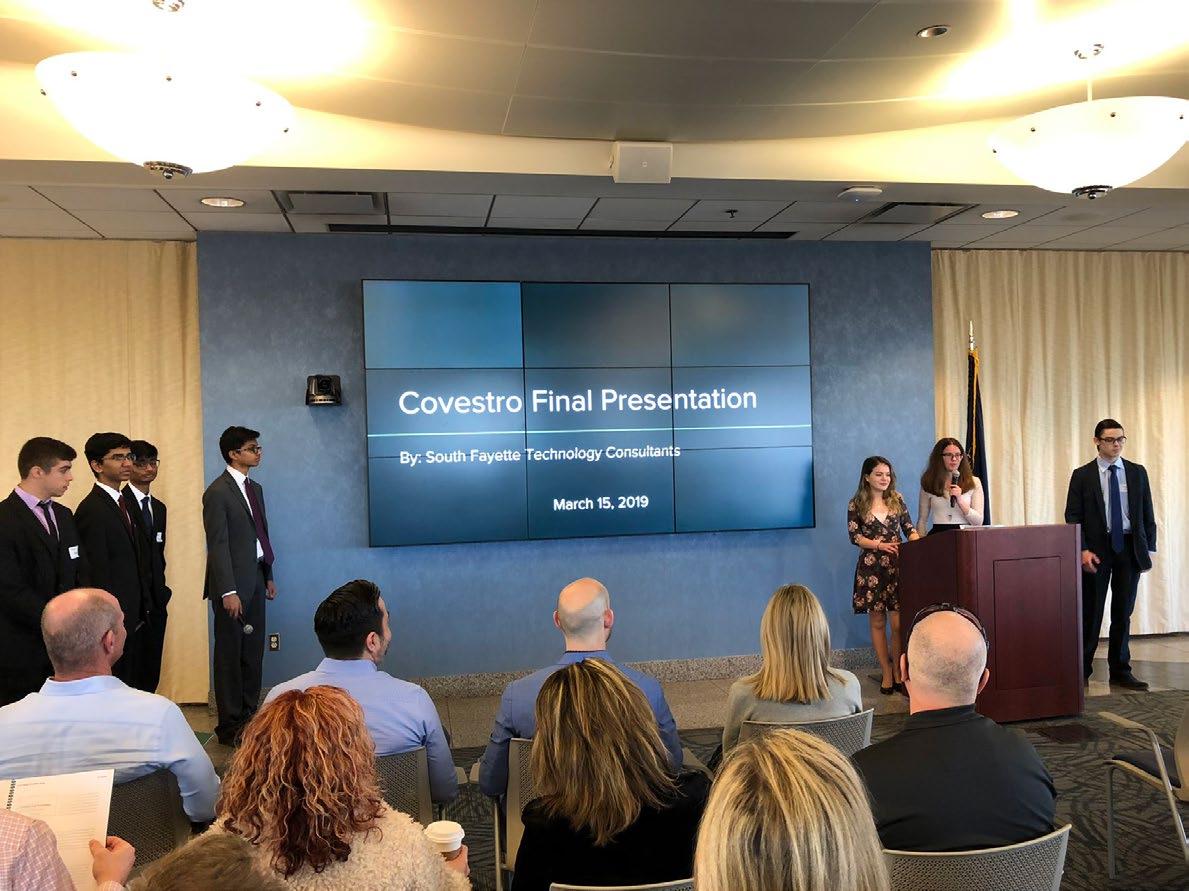
“We have kids after graduating college come back to tell us that the work they did in South Fayette classrooms was more challenging, enriching, and beneficial than any project they did in college,” he said. “These opportunities give them the space to come and grow and may land them internships and careers.”
For Hausman, South Fayette’s focus on problem based learning is invigorating.
“I’m excited to be a teacher again,” Hausman said.
High school senior proposes his solution to place solar panels on the roof of Hennecke’s headquarters.
